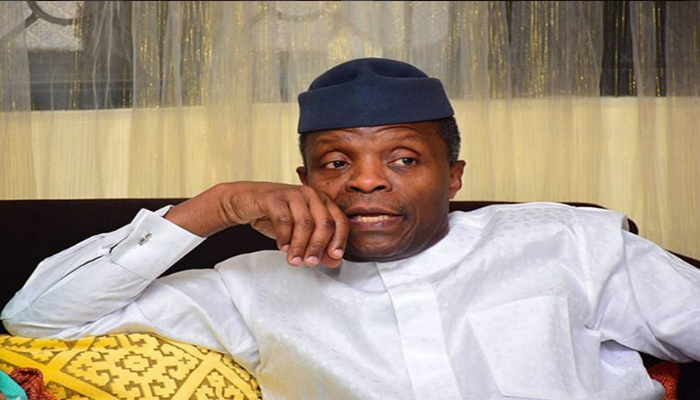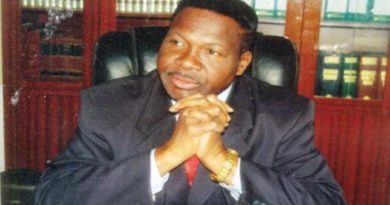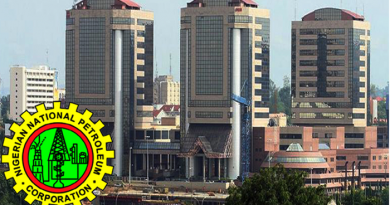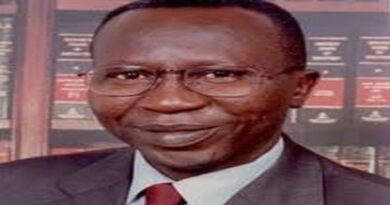Osinbajo hails media’s contribution to Nigeria’s development
*Influencers must set bigger targets, he urges
Vice President Yemi Osinbajo, SAN, has praised the Nigerian media for its contribution to the general development of the Nigerian government and society, noting that “the democracy we enjoy today would not have been possible without the guerrilla efforts of some of our finest and most irrepressible journalists”.
The Vice President spoke in Lagos today at a forum on ‘Media Renewal in Nigeria’ organized to mark the 50th birthday of ace broadcaster, Kadaria Ahmed.
Prof. Osinbajo who commended the invaluable contributions of journalists to the growth of Nigeria from the colonial days through the military era to the present democratic dispensation, said “the Nigerian press is and has always been one of the most vibrant in the world”.
According to him, “You can always take it for granted that no matter the intensity of the clampdown on press freedom in Nigeria there will always be a prominent group of journalists who will refuse to be cowed, and will seize every tool at their disposal to hold the authorities to account.
“This will be as true a century from today as it was in the 1990s. Indeed, the democracy we enjoy today would not have been possible without the guerrilla efforts of some of our finest and most irrepressible journalists.”
Commenting on the present administration’s recognition of the media’s role in society and contributions to the advancement of media practice, Osinbajo said, “there is probably now greater access to information and freedom of expression than ever before in our history.”
Prof. Osinbajo, however, observed that in view of contemporary challenges coupled with innovations in technology, “influencers must set bigger targets,” in order to keep emphasizing the media’s positive impact on society.
He added that “a return to basic principles and the re-discovering of an understanding of media’s place in society, among others” would be critical to repositioning media practice in Nigeria.
According to Osinbajo, “we are at a point where outrage at wrongdoing is severely low. The press as crusaders for justice or against corruption seems like a vintage matter.”
The Vice President added that paying more attention to the education and the welfare of journalists are also central to repositioning the media.
He linked the current challenges in the media on what he termed, “crisis of confidence, borne partly of its own errors or failures and partly out of circumstances outside its control.’’
Relating the challenges of media practice to problems affecting other spheres of the Nigerian society, Osinbajo said, “the Nigerian press has had to deal with the same circumstances that have undermined virtually every institution in the country in the last few decades.’’
According to him, “If faith in the media appears to be at an all-time low, it is because public faith in all institutions is very likely at an all-time low. Politics and politicians are probably even worse off. So, as always, context is necessary, especially in these troubled times.”
Citing the example of the crisis of corruption and lack of integrity as being systemic, Osinbajo said, “Every institution is infected. In some senses, the judiciary and the press have similar functions, the outcomes of courts of justice and the court of public opinion, depends on who presides. It is possible for the corruption trial of the affluent politician to be kept almost completely out of the press.”
The Vice President also joined other guests at the event to present scholarships to beneficiaries in higher institutions across the country and the public presentation of a book in honour of Mrs Kadaria Ahmed.
Dignitaries at the event include the wife of Kaduna State governor, Hajiya Hadiza El-rufai; Businessman and philanthropist, Dr Wale Babalakin, SAN; Chairman of Channels Television, Mr John Momoh and his wife; family and friends of the celebrant.




